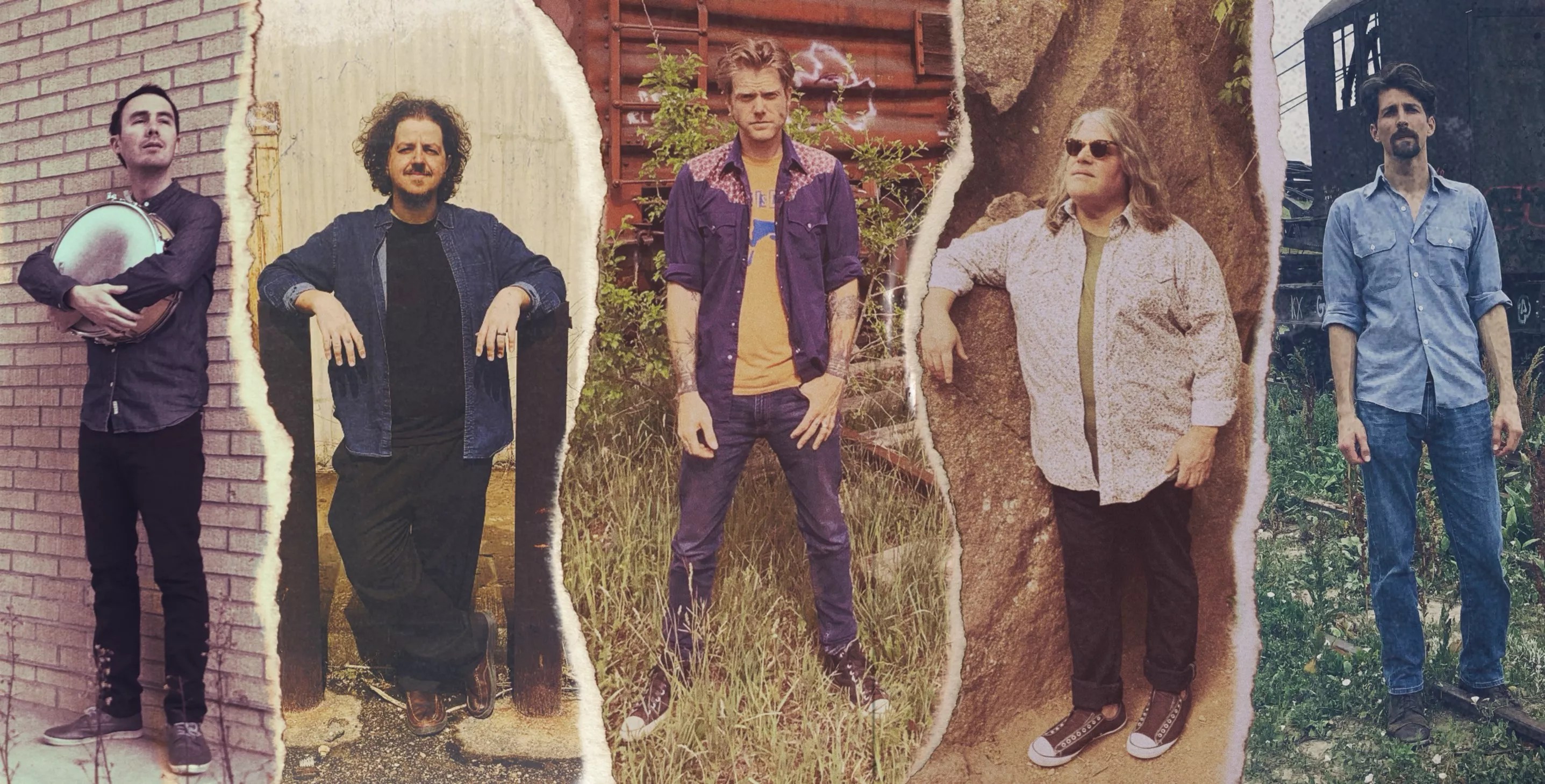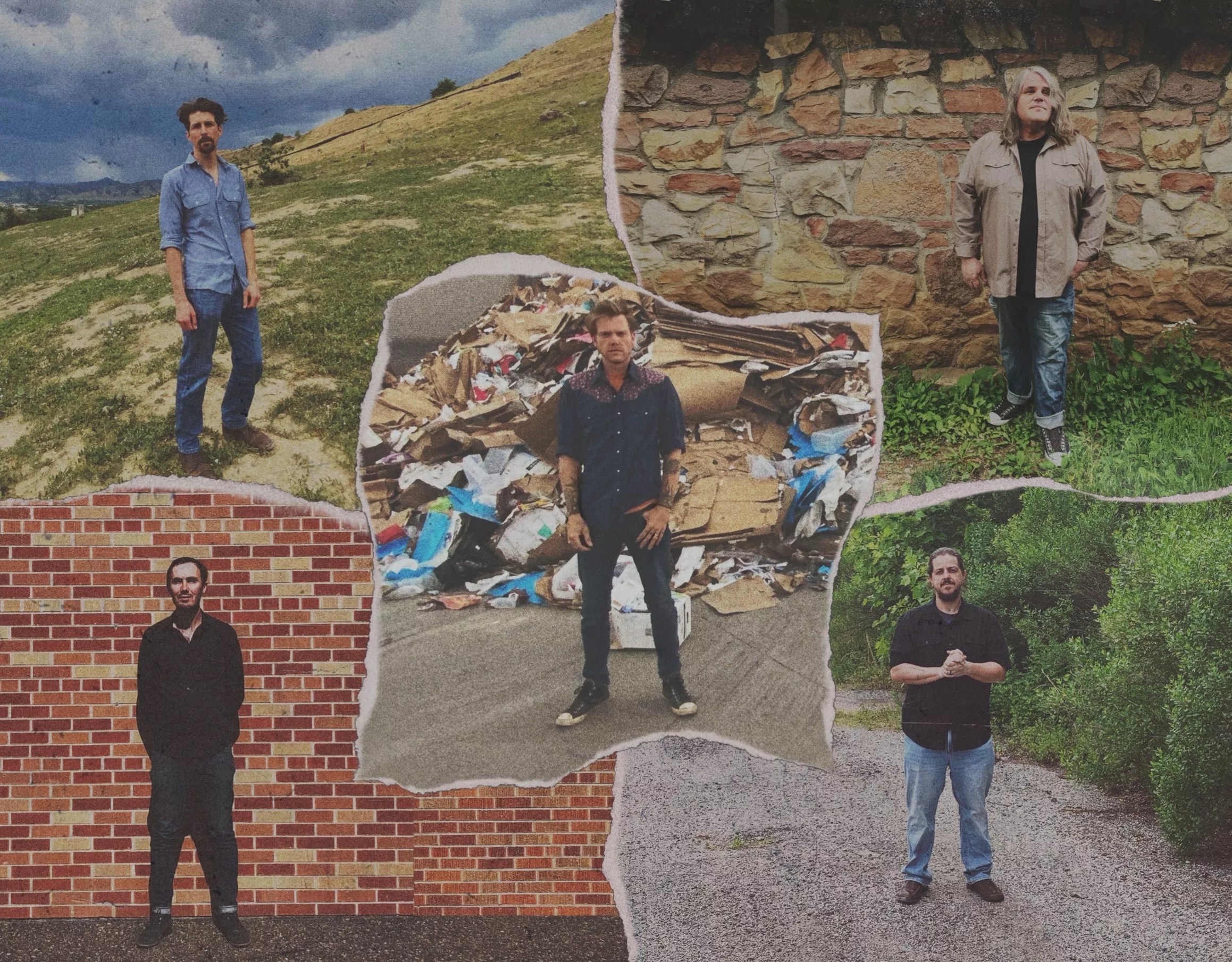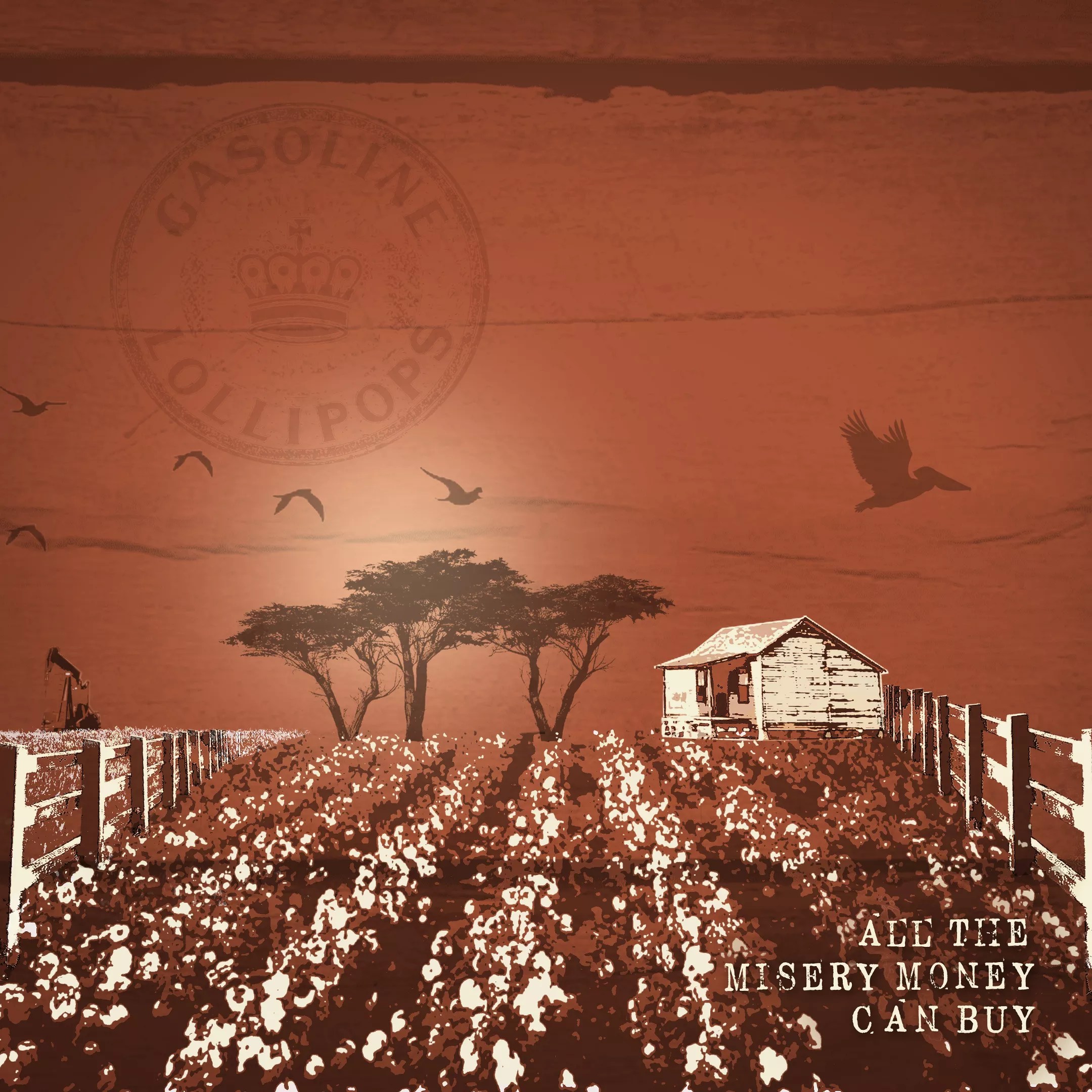
Courtesy of Gasoline Lollipops

Audio By Carbonatix
Gasoline Lollipops make country music for folks who prefer outlaws to cowboys, alt-rock for people who loathe hipsters, and Americana for those who admit that America never was great. And the best way to understand where the Boulder-based group gets its sound is to get acquainted with frontman Clay Rose. Growing up between Boulder and Tennessee, the son of a country songwriter and a pot-growing truck driver (his parents connected through a mutual client – none other than Willie Nelson), Rose naturally embodies the authentic spirit of wanderlust that other artists spend years cultivating. Doing stints in psych wards and jails as a young adult until he became sober and met his now-wife, Rose has lived a life ripped from song lyrics, and as he tells it, it’s impacted Gasoline Lollipops’ music “in every way possible.”
“It was one of those upbringings where very, very often I would wake up in the morning and I wouldn’t know what state I was in. And so looking for something to ground you in that kind of an environment, you have to look internally, or ethereally, and so music was something that grounded me,” Rose explains. “No matter what state or what culture we were in, it was one of those thirty albums playing on the tape deck. The cab of the truck and the music – that was home. To this day, when I get homesick, it’s not for a particular geographic location. It’s for a certain interstate and an album.”
Eventually that little boy in the cab of his dad’s truck grew up, took a hard look around, and wrote a collection of biting elegies for the country he witnessed. On Gasoline Lollipops’ latest album, All the Misery Money Can Buy, Rose and the rest of the gang (current roster: Kevin Matthews on drums, Bradley “Bad Brad” Morse on bass, Scott Coulter on keyboard and organ, and Donny Ambory on guitar) take listeners on a road trip through the American South, stopping not at tourist attractions, but rather the small towns off the beaten path. This, says Rose, is where the cracks in America’s foundation are most exposed: poverty, misogyny, racism, selfishness, inequality and greed.
In order to fully immerse themselves in the mission, bandmembers went straight to the source, recording the entire album in Lafayette, Louisiana. Creating All the Misery Money Can Buy wasn’t their first venture into Lafayette. They had previously fallen in love with the town in 2015, when they visited as part of Spokesbuzz’s band-swap program and were struck by the spirit of the place and its people.
“It was the happiest place I’ve ever been,” Rose says. “And it’s one of the poorest places I’ve been as well, especially because it’s a college town, and yet it was one of the happiest places I’ve ever been. All the people there were just so sweet, and we fell in love with the place.”
Rose and his band hadn’t necessarily planned to return to Lafayette, but they were set on recording their latest album in the South for two reasons: “One, we were trying to evoke a certain sound on the record, and we thought that would be better facilitated if we were in the environment that we were drawing from musically,” Rose says. “But the other was for sociopolitical reasons – because it’s a political album, but we wanted it to be the kind of political album that hopefully opens dialogue across party lines rather than preaches to the choir. So that’s the other reason we wanted to do it down South, where people are typically more red-leaning.”

A selfie collage is the new “socially distanced” band portrait.
Courtesy of Gasoline Lollipops
Making political music is nothing new for Rose, but his approach has changed. In his anarchist youth, he was never concerned with how his listeners might react.
“There was a time in my life, in my twenties, where all I played was political,” he says. “I had a big blue mohawk, and my attitude was, ‘Fuck you. You don’t like it, get out of the way.’ And I also had no audience. Then at some point I got older, I got hurt more, and so I softened up a bit and started to get a little more introspective and started writing more introspectively, and I started reaching people. And the fan base grew, and it grew on a very personal level. So it was scary to put something like this in front of a fan base that I feel like I have such a personal connection with.”
However, Rose ultimately realized that he couldn’t stand by in silence.
“As this presidency evolved – or devolved, I should say – it became more and more apparent to me that I have a responsibility when I have a speaking platform, even if it’s as small as mine,” he says. “I thought about my heroes – the people on those thirty tapes that I grew up listening to with my dad, like Bob Dylan, like Nina Simone. They put their life on the line for what they believed in. So I felt like I owed it to them, and I owed it to the voiceless.”
It’s uncanny how the eleven tracks on All the Misery Money Can Buy, which were written long before anyone had heard of COVID-19, eerily reflect the current reality in America. But to Rose, it makes perfect sense.
“We wrote them all within the last eighteen months, so they were all written under the Trump presidency,” he says. “Whatever we’re experiencing now, with COVID…I mean, COVID is just a magnifying glass for all the shit that was already there.”
From the rousing title track, about the failure of capitalism, to the anthemic “Lady Liberty,” a response to the #MeToo reckoning, GasPops doesn’t shy away from controversial topics. The album’s twangy swagger is punctuated by soulful organ courtesy of Coulter and uplifted by gorgeous backing vocals from local gospel singers in Lafayette.
Despite the album’s title, All the Misery Money Can Buy contains more than just misery. We have Rose’s two children to thank for that.
“I think they added a tenderness to it,” Rose says of his little ones’ impact. “It made hope mandatory. I can’t just state the problem; I have to offer a solution as well, for their sake. So it made me really meditate and think deeply and constructively about problems. It’s not just purely political – there are love songs there, too. Granted, they’re framed within an economic-inequality framework, because that’s the reality I live in and the reality I love in.”
Rose shows his softer side on folky tracks like “Nights Are Short” and “Gypsy,” and delivers a heartbreaking lullaby to his son with “Dying Young.”
Part of the album’s gritty, vintage feel comes from the band’s unusual production choices. The entire album was recorded to tape, without the help of any computers. It was even mastered on tape by Bernie Grundman, the legendary sound engineer who mastered such classics as Jimi Hendrix’s Electric Ladyland and Michael Jackson’s Thriller. Before being uploaded to SoundCloud, the album had not been digitized at all. As a result, there’s a timeless quality to it, even though topically, the songs are very much anchored in contemporary America.

The cover art for All the Misery Money Can Buy.
Courtesy of Gasoline Lollipops
The most exciting track on the album isn’t exactly a Gasoline Lollipops song. It’s the haunting cover of Nina Simone’s “Sinnerman” that closes the album. Inspired by Simone’s 1965 live-from-New York version, which Rose calls “the most incredible piece of recorded music I’ve ever heard,” the band spent months sculpting its own iteration of the song.
It’s chilling to hear Rose’s personal connection to the original:
“When I and my old best friend were both dying from drug addiction, about six years ago, that song cut through like a knife,” he recalls. “Because it’s so spiritual, you don’t even recognize words and notes. You recognize the plaintive cry of the wilting mortal. I identified with it so strongly. It felt like it was coming out of me when I was listening to it. It felt compassionate and merciless at the same time. It was one of the many things that saved my life back then.”
All the Misery Money Can Buy will be released on September 11. And yes, releasing the album on the anniversary of 9/11 was a purposeful decision.
“The thing is – I’ve had multiple people tell me this, too, that so much of COVID is reminding them of 9/11,” says Rose. “All the flights were grounded, everybody is scared to go anywhere public. It’s this shock of fear. And it was also the beginning of a deluge of justified bullshit violence that started occurring for the sake of profit. And 9/11 itself was a horrible tragedy, but it was really just the starting gun. So I am reminded of that as we stepped into COVID, and right at the same time we had George Floyd and just this deluge of violence. It’s the same kind of thing. COVID was the starting gun, and now all these atrocious acts are being justified under the banner of fear and protection. So I just wanted to put it right in the crossroads, where the horrors of today meet the horrors of yesterday.”
All the Misery Money Can Buy drops September 11 on Soundly Music. Three singles from the album are available for listening now on Gasoline Lollipops’ Spotify. A concert celebrating the album release is planned for September 14 at Red Rocks, with two socially distanced shows at 6 p.m. and 8:30 p.m. Bonnie and Taylor Sims of Bonnie and the Clydes and Everybody Loves an Outlaw will open. Tickets are on sale now.